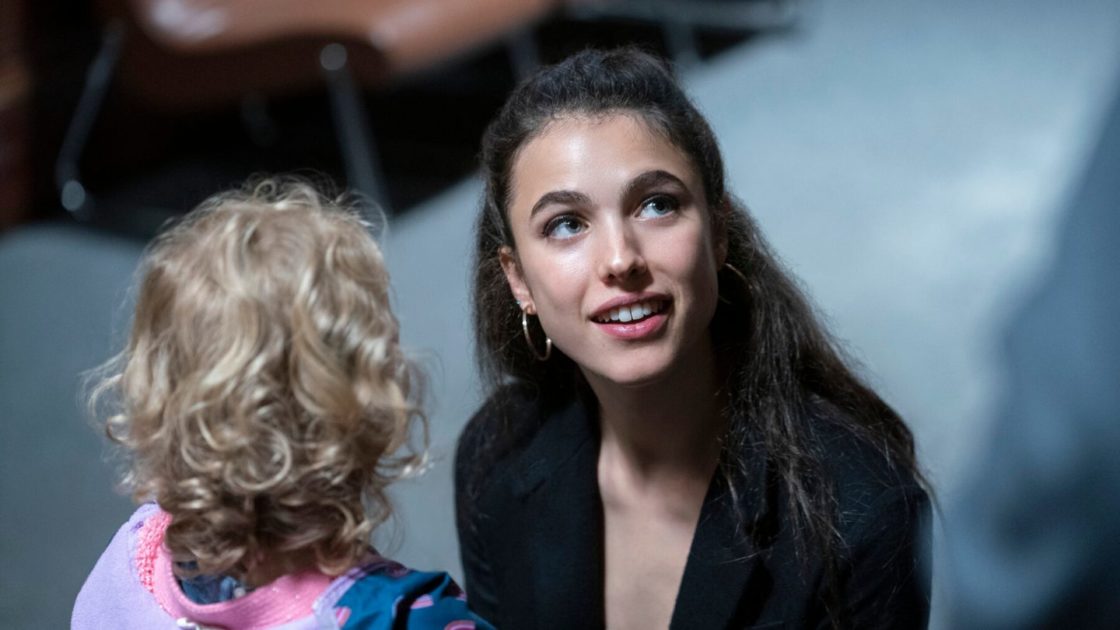“Maid,” a limited Netflix series starring renowned actors Margaret Qualley, Andie MacDowell, and Nick Robinson, does a great job at honoring National Domestic Violence Awareness Month.
October was first declared as National Domestic Violence Awareness Month in 1989. It was created to generate awareness for domestic abuse survivors and allow them a safe space to have a voice.
“Maid” features a young woman named Alex, played by Margaret Qualley, who has a young daughter, Maddy. She begins the show in an abusive relationship with a man named Sean (Nick Robinson), attempting to run away from the relationship in the middle of the night. She runs to her mother, Paula (Andie MacDowell), an eccentric, free spirit artist, who is unstable, bipolar, and unable to even take care of herself.
The unique concept about this relationship, though, is that Margaret Qualley is the real-life daughter of Andie MacDowell, making their acting dynamic even stronger.

Alex attempts to get help from social services, who turn out to be not much help at all. Her experience with social services accurately represents how flawed the system is in real life.
The social worker attempts to help Alex by getting her a job at a company called Value Maids, although it only pays $12 an hour and offers three hours of work per week.
This again, shows the flaws in the system. Those who are homeless and have children have the disadvantage more than those without children. Even though Alex got the job at Value Maids, she still has to pay the $8 ferry fee, find someone to watch her daughter, which also costs money, along with only getting three hours of work equaling only a $36 check. In her case, every penny counts.
Throughout the series, it depicts the financial struggle Alex goes through despite having her job, as well as the ongoing domestic abuse she faces, even when not living with Maddy’s father, Sean.
Without spoiling too much of the plot, let’s establish the fact that domestic abuse is just not physical. She faces varying amounts of emotional abuse by Sean, and no one in her life, not even the courts, acknowledges it as actual abuse. According to Healthline.com, emotional abuse includes yelling, gaslighting, belittling, financial control, unpredictability, jealousy, guilt tripping…the list goes on and on–and all of which Alex had to endure in the show.
Sean takes advantage of her vulnerability, makes her think in one way or another that he’s changed for her and their child, but slips back into his old ways, as many abusers do.
The show does an excellent job of depicting how impactful emotional domestic abuse has on one’s mental state, in a sense taking them out of the real world, shutting them out. There are many scenes throughout the show, even with people other than Sean around, where Alex is silenced and has no voice. The sad thing is, no one stands up for her.

There are two people throughout the show who have a grave impact in Alex’s life: one of her rich clients for Value Maids, and the woman named Denise (BJ Harrison) who runs the domestic violence shelter and figuratively saves Alex’s life.
The rich client, named Regina (Anika Noni Rose) plays a large role in Alex’s life, or rather vice versa. Regina, though having money, lives a very shallow life. She has all the material things in life she could ever want, but as we come to find out, just those material things are not enough to fill the void in her life. She learns more from Alex than anything about the value of life, appreciating the little things, as well as learning to be a better person all around.
Whereas on the other hand, Denise, who runs the shelter, teaches Alex a thing or two. She teaches her the lessons of self value and worth, and taking control of her own life. Although Alex slips back into old mindsets later in the show, she gets that final realization of her own worth, what she wants for her own life, as well as her child’s life.
I love how it shows that you can bring someone to the well, but it is up to them to drink the water. It is very raw and very real how Alex finally finds herself again.
In the end we hopefully come to see how real and true emotional domestic abuse is. Even though other people in her life do not necessarily see it, Alex does.
Overall, I give this show a 10/10. By the end of the last episode, I was in tears. It is a very powerful and real thing to see someone dig themselves out of a hole, grow and find their worth, fictional character or not.
Bottom line is, physical or emotional, abuse is abuse.


